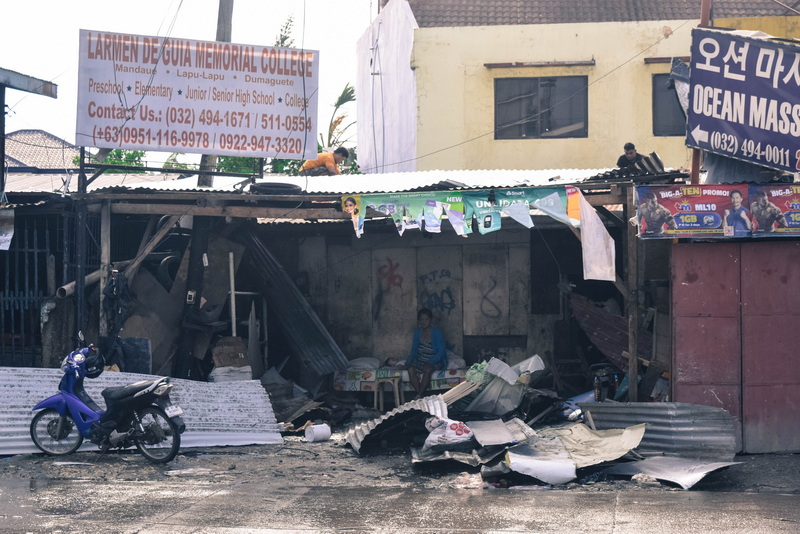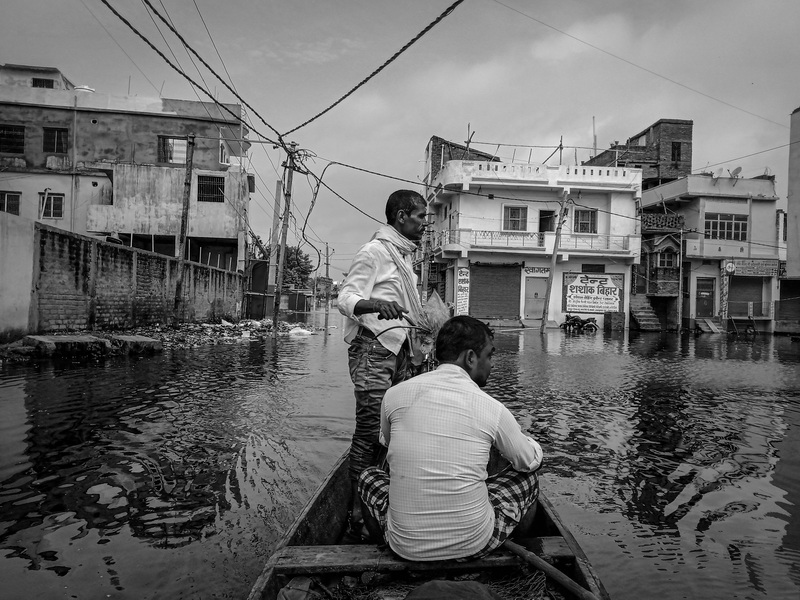Why Human Rights in the Climate Crisis Era?
By Kim Gi-gon
The COVID-19 pandemic has allowed us to realize that climate crisis is a pressing and present disaster that has already infiltrated into our daily lives. Since scientists raised climate change as a serious issue in the mid-1980s, it has posed a grave threat to every aspect of the lives of humanity over the entire globe.
Various research studies and our experiences have proven that new infectious diseases, such as COVID-19, and social and economic polarization are closely linked to climate change. It seems to be no coincidence that the period of the last half century, in which new contagious diseases have exponentially grown, falls on the period in which climate change has been aggravated. Many scientists have warned that we would face devastating consequences when the temperature rises by 1.5˚C from the level of the beginning of industrialization. Currently, however, we have come closer to that point. Therefore, now is time for us to raise awareness of and take actions against the climate crisis in order to brace for more serious risks in the future.
Indeed, climate change is directly related to human rights in that it undermines the basis of social and economic life of people, not only the environment, to eventually take a devastating toll on humanity. In this regard, international organizations and society have long dealt with the issue of climate change from the perspective of human rights. Especially, the UN Human Rights Council established a human rights-based thinking system on the climate change in 2007 and issued the Resolution on Human Rights and Climate Change, which expresses concerns that climate change could cause a very extensive and immediate threat to humanity and society.
In 2016, the Council called for the integration of human rights approaches into actions concerning adaptation to and mitigation of climate change. In October 2021, it adopted a resolution to recognize climate change as an issue that had a serious impact on human rights. The IPCC’s Working Group II Contribution to the Sixth Assessment Report suggested that the climate crisis had adverse impacts not only on the ecosystem but also on water shortage, the food crisis, health deterioration, urban lives, residence, and infrastructure in many areas. Furthermore, we need to cope with the issue of the life of as many as 20 million climate refugees who have had to leave their homes because of desertification and water shortage derived from climate change.
Not only the UN but also international human rights activists have concern over inequality hidden within the climate crisis. The climate crisis has deepened inequality in diverse settings and fields of nations, regions, and classes – not only aggravating environmental disasters. Especially, climate change has disproportionately taken a greater toll on the socially vulnerable. Women, the disabled, the poor, the elderly, the displaced, and refugees tend to be hit harder than other groups of people. For instance, this summer, Seoul, the capital of South Korea, was hit hard by unprecedented torrential rains that left many casualties and much property loss. In particular, many of the casualties were those who lived in semi-basements of houses because of their economic difficulties. With the accelerating climate crisis, extreme heat and cold waves have caused even more serious damages to those living in poor residential areas as well. The point is that everyone suffers from the climate crisis, however, the damages the climate crisis inflicts are considerably discriminate.

(Photo by Carl Kho on Unsplash)
Cho Hyo-je, human rights sociologist and professor, said that the most seriously infringed upon right by the climate crisis is the right to health. The climate crisis brings about all kinds of health problems, including seasonal diseases, new viruses, vibrio illnesses, and lung disease. It also threatens the mental health of humanity. After experiencing wild fires, typhoons, and other natural disasters, victims reportedly tend to suffer from devastating post-traumatic stress disorder (PTSD), anxiety, and insomnia.
Climate crisis is deeply intertwined with social and economic problems, including the food crisis, poverty, contagious diseases, refugees, job insecurity, inequality, and poor living conditions. It is one of the greatest threats that undermines stable fundamentals of life and causes the deterioration human rights at every corner of our lives. This is the reason why we have to strictly uphold the obligation of nations and local governments to prevent human rights infringement and protect all citizens.
With the adoption of the Carbon Border Adjustment Mechanism (CBAM) by the EU in 2023 and the Carbon Neutrality Policy by the Republic of Korea, many regions and nations have rushed to come up with and implement policies and initiatives in response to climate change. In the course, the most important principle is “just transition.” Policies of transforming energy and industrial structures to cope with climate crisis need to take an approach that protect laborers and locals and eliminates inequality. First of all, taking a human rights approach is important to deal with the climate crisis. We need to view the climate crisis as a problem of human rights; therefore, the process of addressing it needs to take a human rights approach. In this crisis, the principles that we need to value include national and local governmental responsibility to protect citizens’ human rights, active climate actions by businesses to prevent the carbon capitalism, the application of climate-related conventions agreed upon by the international community, engagement of youth and stakeholders, and transparent information-sharing.
Kwon Seung-moon, deputy director of the Energy and Climate Policy Institute, emphasized three directions that climate justice needs to move in from the perspective of human rights. Among them, the first is substantial justice. This is about respecting the rights of all members of our society as equally protected against climate crisis and the right for all to enjoy a healthy and clean environment. The second principle is distributive justice. This is about addressing the inequality in damages incurred by climate change. The third is procedural justice: engaging those hit hardest by climate change in the process of responding to the climate crisis.
In the wake of the climate crisis, the most significant and pressing challenge that the world human rights cities, including Gwangju, have to work on is to thoroughly prepare policies to protect human rights, a universal value of humanity. The 12th World Human Rights Cities Forum will be held in Gwangju in October under the theme of “Climate Crisis and Human Rights.” The upcoming forum is expected to bring together human rights cities, human rights organizations, international organizations, city associations, and human rights NGOs to provide a venue for discussions on various human rights issues caused by the climate crisis and ways to collaborate among human rights activists from the perspective of “the human rights approach in responding to the climate crisis.” Especially when the current climate crisis becomes incorporated into the core of our daily lives, not as a mere future threat, we need to disseminate discussions and actions to protect human rights of all.
The Author
Dr. Kim Gi-gon participated in this year’s theme selection and in the making of concept notes for the World Human Rights Cities Forum (WHRCF). He is also a senior researcher at the Gwangju-Jeonnam Research Institute and a member of the WHRCF Planning Committee.
Featured image: Two men overlook the flooded area in Shekhpur, Muzaffarpur, Bihar, India. (Photograph by Deepak Kumar on Unsplash)







